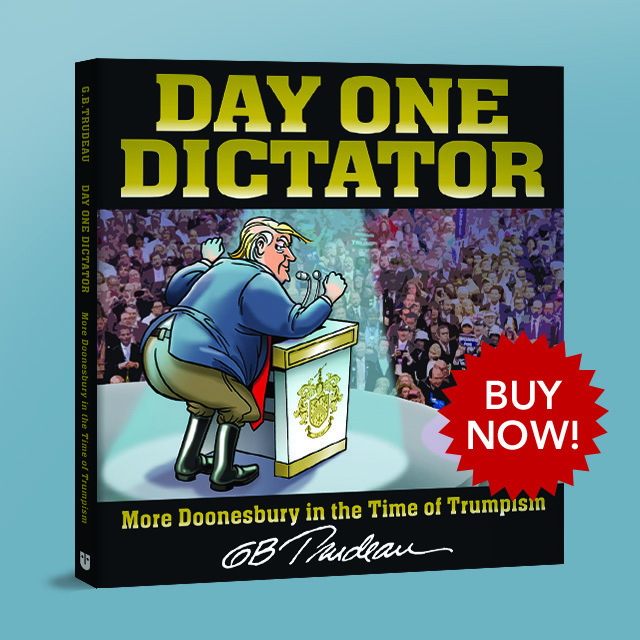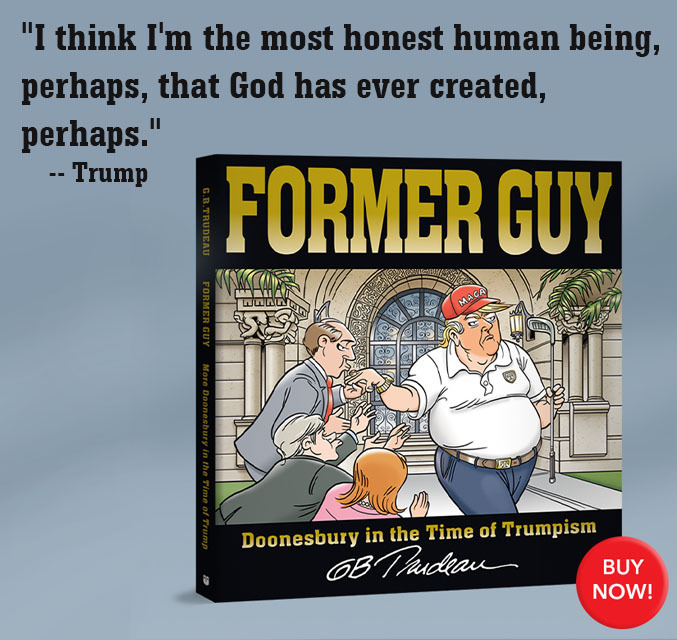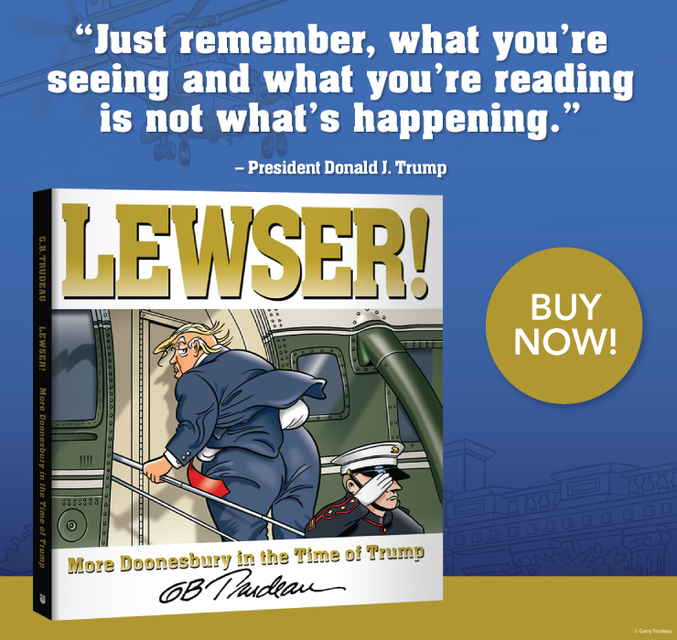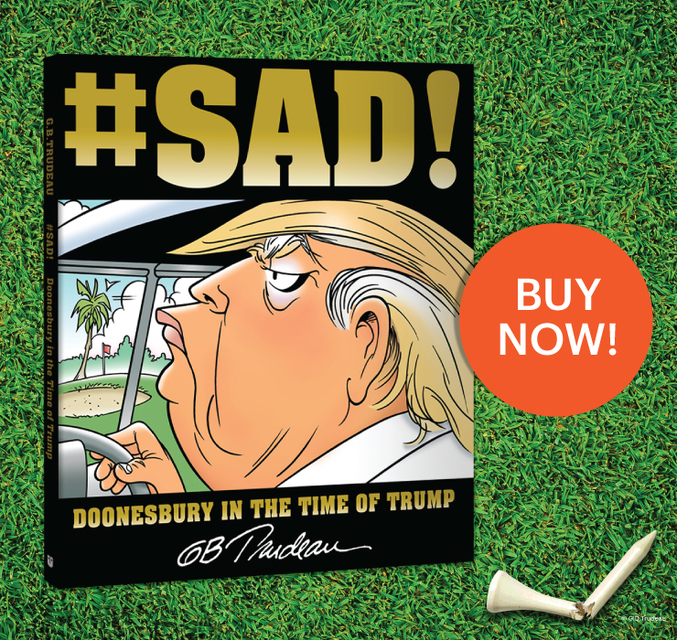Doonesbury by Garry Trudeau for August 04, 2014
Transcript:
Clyde: Hey, man, is it true one of your ancestors was very into civil rights? Zonker: That's right, Clyde! It was ol' Uncle Nate Harris! He used to hang around with the likes of Sammy Tucker! Clyde: Who was he? Zonker: Well, Sammy was one of the few black leaders of his times, but before that he was a slave, and might've remained one had not a copy of The Declaration of Independence fallen into his hands! Sammy Tucker: See, right here, boss! "All men are created equal!" Slave Owner: Hey! Who taught you to read?!









Sorry; I have to call BS. Very few had (what was then) the conventional view of slavery. But they felt it was most important to keep the Southern colonies along for the ride. So their strategy was that they could separate from England first, and when that was accomplished, they could work on getting rid of slavery. .Maybe it wasn’t the best choice they could have made, but it wasn’t from not wanting to. I know it’s very fashionable to rag on the founders, but if you read their private writings, or almost any (even slightly) even-handed history, the overwhelming impression is that their hearts were, almost all, in the right place. .And, yes, I know that many of them owned slaves. Most lived in places where it was illegal to free your slaves, and most did free their slaves in their wills, which was the only it could be done legally. Yes, they could have freed theirs illegally, but again, they felt they could only scoff at so many laws at a time..It’s certainly reasonable to second-guess their priorities and strategy, and to say they should have focused more, or earlier, on freeing the slaves, but it’s just beneath you to speak about them the way you did..Pick up a good book, and read some about that era. Here’s a suggestion: “Thomas Jefferson: In His Own Words” is a compilation of letters to world figures and friends. Since he never expected the letters to friends to be read by others, it offers a window into what, and how, he thought.